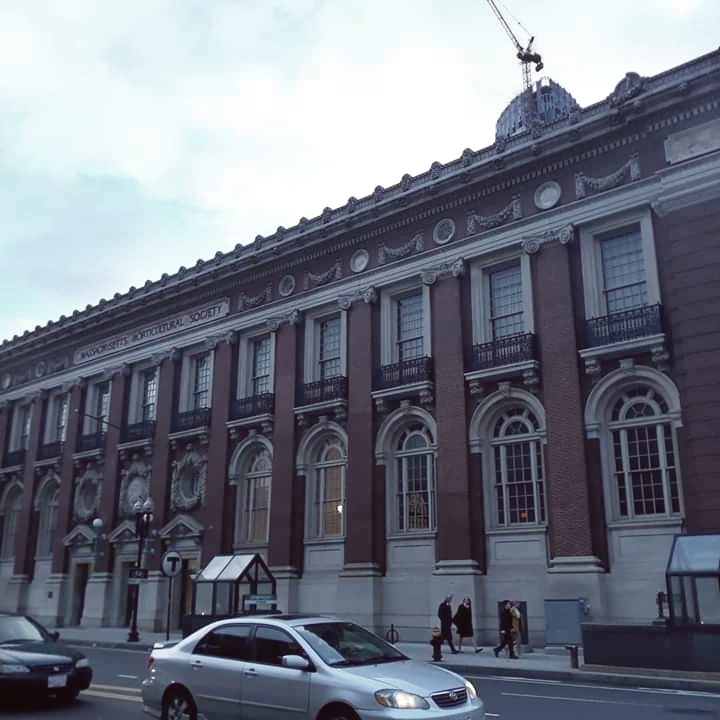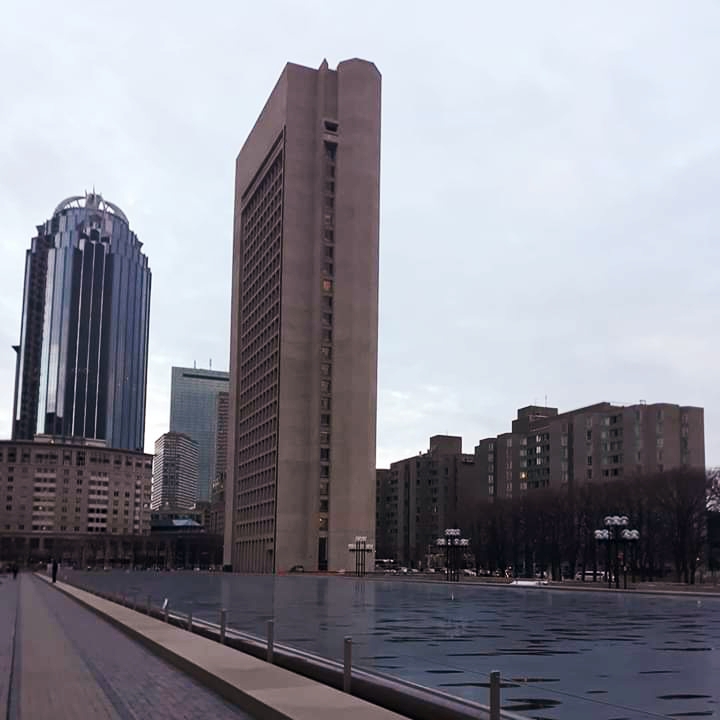In this multi-part blog series, we will be exploring why current #TuftsGrad students chose to pursue their graduate education at Tufts University. Today, we hear from Alia Wulff, Cognitive Psychology Ph.D. student, in part 4 of our ‘Why Tufts?’ series.
Written by Alia Wulff, Cognitive Psychology Ph.D. student
When I was in high school my favorite show was Leverage. The characters in that show moved to Boston in the second season and stayed there for three years. For some reason, the location stuck with me. I fell in love with the brick buildings and the old-world charm. I enjoyed listening to the accents and seeing the strange combination of historic architecture and modern skyscrapers. I decided that I would enjoy living in Boston, and if I ever had the chance I would move there.

Fast forward about seven years and I was accepted to Tufts, a school only minutes away from the heart of Boston. I was so stressed by the challenge of moving that I barely thought about my high school dream. So it wasn’t until I was finally in my apartment, lying on a yoga mat and bemoaning the lack of central air, that I realized that I was finally there. Boston was my home for the next five years.
There is something special about Boston. My hometown back in Washington State was founded in the 1870’s. It’s actually older than Washington itself, as that was only made a state in 1889. But both of those places seem like they were founded yesterday when compared to the history of Boston. Boston was founded in 1630, a full 240 years before people even began settling in my hometown. Boston has a thread of history that runs through the streets. While I’ve lived here, I’ve walked on roads that were present during the American revolution. I’ve seen buildings older than my state. I’ve explored areas of the city that have been inhabited since before calculus was invented. The history of Boston isn’t only stored in museums and written on plaques. It is in every brick that was used to build this town.
Of course, Boston isn’t only about what happened in the past. This is a bustling city, after all. There is a thriving art scene, supported by the dozens of galleries and museums within the city. You can find food from anywhere in the world, made traditionally or with a modern flare. And every time I venture into the city I find a locally-owned bookstore tucked away amongst the tall buildings, waiting for me to come in and spend inordinate amounts of money on books I (probably) do not need. I’ve spent many afternoons wandering in the Boston Common, drawing all the dogs I see and enjoying the sunshine. I’ve seen weird art shows with my friends, wandering through Park Street to see the imagination of the people here. I’ve visited the year-round farmer’s market, then gone home and made pasta with fresh, locally-grown ingredients. No matter where I go I always find something to enjoy.

This doesn’t mean that I don’t miss Washington. I miss the trees and the rain that doesn’t soak you to the bone and the mild fall weather. And I don’t like some things about Boston, such as the humidity and heat of the late summer and the fact that I’ve never had a public bus arrive on time. But Boston does its best to make up for the flaws. My undergraduate advisor always told me to pick a graduate school for the advisor, not for the location. He was right, of course. However, even though I didn’t come to Tufts because it is in the Boston area, I am happy that I ended up here.
